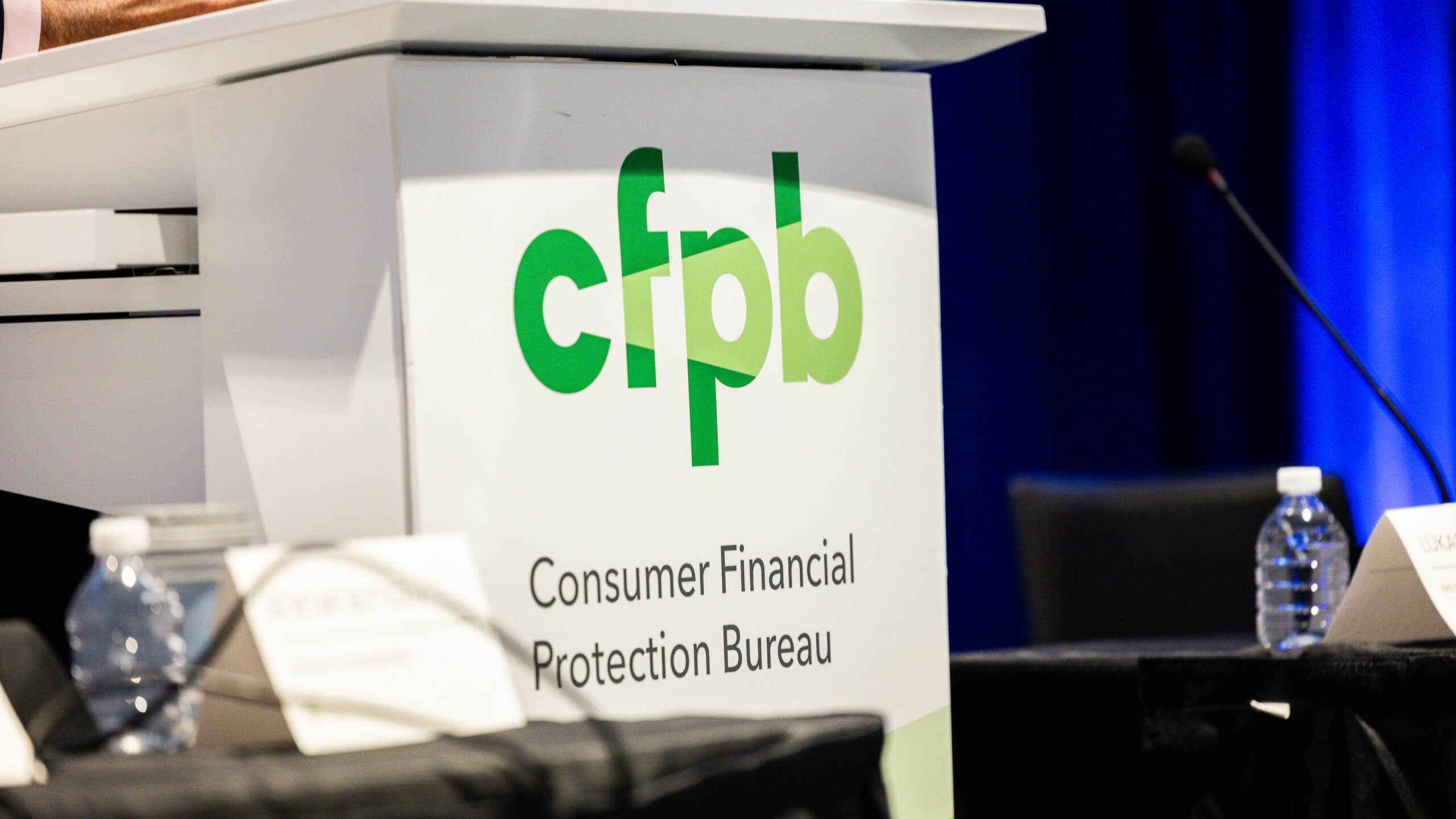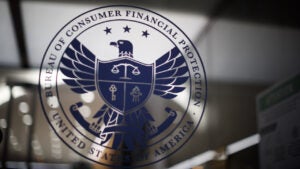CFPB finds student loan servicers are mistreating borrowers — here’s what you can do

Key takeaways
- The CFPB found multiple violations and deceptive and abusive practices among lenders and servicers in the private and federal student loan space.
- Violations include providing misleading information, illegally withdrawing from accounts and keeping borrowers on hold for more than an hour.
- Borrowers can take action by filing a claim with the CFPB and help make a difference by sharing their own experiences.
This week, the Consumer Financial Protection Bureau (CFPB) released a report outlining a range of illegal and abusive practices examiners uncovered across federal and private student loan services and lenders.
“This is a long time coming,” says Mike Pierce, executive director of the Student Borrower Protection Center and former senior regulator of student loans for the CFPB. “The CFPB has just affirmed what borrowers have known for years — the student loan [industry] prioritizes profits over their borrowers.”
The violations fall under five main categories, as laid out in the Supervisory Highlights:
- Refinancing student loans: Lenders misled borrowers into refinancing their federal student loans, causing them to lose federal benefits. They also failed to re-amortize loans when borrowers asked for federal loans to be excluded.
- Illusory benefits offered by private lenders: Lenders falsely told applicants that they didn’t qualify for specific discounts or loan discharges and continued advertising canceled programs.
- Noteholder liability related to claims of school misconduct: Loan servicers did not allow borrowers to use their school’s misconduct as a defense against repaying their loans — even when their contract said they could.
- Illegal loan collection tactics: Private student loan servicers falsely threatened legal action, allowed schools to withhold transcripts and educational services and improperly withdrew from accounts.
- Federal student loan servicing during the return of repayment: Federal student loan servicers failed to provide adequate call support, sent deceptive billing statements, withdrew unauthorized amounts, and incorrectly processed applications for income-driven repayment plans.
These lenders and services have time to remediate the identified violations. According to the report, some have already updated policies and procedures, removed specific language from letters and contracts, and developed remediation plans.
However, more serious violations may be subject to further investigation and enforcement. Borrowers can also take separate action, according to Pierce, whose team is currently representing the American Federation of Teachers in a lawsuit against servicer MOHELA for alleged violations similar to those the CFPB published.
Understanding the violations in the CFPB report, knowing your rights, documenting your experience and learning what to do next can help you take action to prevent this type of fraud from affecting you.
What can borrowers do?
“Knowing your rights is the first step against this fraud and deception,” says Pierce. “Unfortunately, student loans can be very confusing.”
Learning more about student loans and your loan options is a good place to start. Ensure you understand your student loan rate and terms, read your contract thoroughly and check your numbers using a loan repayment calculator.
Also, review educational resources, like the student loan resources from the CFPB. Contact your servicer with questions and issues, but do so with caution. “Be aware that servicers aren’t always operating in the borrower’s interest,” warns Pierce.
Pierce recommends that borrowers submit a complaint to the CFPB if they’re unsure whether a lender or servicer in the student loan space has defrauded them. You may also seek legal counsel, though Pierce recommends filing a complaint and sharing your story first.
According to Pierce, the best way to avoid becoming a victim of these practices in the future is for regulators to enforce the law. And the best way to encourage this is by sharing your experiences with regulators and your state’s attorney general. One way to do so is through social media.
“Regulators have been looking to social media,” says Pierce. “For things like wait times, take a screenshot of how long you’ve been on hold and share it to your social [accounts].” He recommends tagging your loan servicer in the post and using relevant hashtags.
Before you make your voice heard, understand what wrongdoing may look like in the student loan space. The CFPB report details issues examiners spotted at one or more student loan servicers.
The details on alleged lender and servicer violations
Learning more about what the CFPB considers unfair, abusive or deceptive practices and violations may help you recognize similar issues you may have experienced. Look out for these red flags when dealing with lenders and servicers in the future.
Refinancing student loans
Some private lenders are accused of misleading borrowers about refinancing their federal student loans by not telling them they would lose access to federal forgiveness programs if they did so. Lenders also failed to cancel the refinancing of federal student loans when borrowers requested it within the three-day cancelation period.
Additionally, the CFPB found that some lenders included federal loans in refinance packages when borrowers were only trying to refinance their private loans. When these borrowers requested that federal loans be excluded, the lenders removed them but failed to re-amortize the loan. This resulted in borrowers paying more each month than they should have.
Illusory benefits offered by private lenders
Examiners found that lenders used deceptive practices when advertising certain loan benefits, including automatic payment discounts and unemployment protections. Lenders told borrowers that their loans didn’t qualify for an autopay discount, even when they did. This kept people from signing up for autopay and receiving the discount. Lenders also advertised to borrowers that they could pause their payments if they lost their jobs, even after eliminating this benefit.
Finally, lenders denied applications for loan discharge for borrowers who met the eligibility requirements for Total and Permanent Disability (TPD). Under TPD, those who are totally and permanently disabled are no longer required to repay their student loans.
Noteholder liability related to claims of school misconduct
Many loan contracts state that borrowers can challenge their loan obligations when their school participates in misconduct or fraud. CFPB examiners found that student loan servicers lacked the necessary policies and procedures to investigate such claims. When some borrowers sent complaints, they received email responses claiming there was no discharge program. Borrower complaints went unaddressed unless they retained attorneys.
Pierce finds this violation one of the more egregious. “We’ve seen a lot of work done in the federal student loan system to provide redress for borrowers defrauded by their schools, but there hasn’t been much movement on the private student loan side,” he says.
This creates inequities between those whose federal loans were canceled under borrower defense to repayment and those whose private debt remained when they were defrauded by their schools.
Illegal loan collection tactics
CFPB called out multiple ways servicers strong-armed borrowers about their debts.
Private student loan servicers sent collection letters to late-paying borrowers threatening legal action and debt collection without intending to follow through.
Servicers also included provisions in contracts that allowed schools to withhold transcripts and educational services as a remedy for default. While services have since removed the language, these punishments blocked students from getting transcripts for employment, state licensing or further education. Students still in school were denied access to classes, putting their graduation at risk.
Examiners found that some servicers withdrew funds one to three days before the authorized date and failed to notify borrowers of changes to the monthly withdrawal amount.
Federal student loan servicing during the return of repayment
Federal student loan servicers often use call centers to assist borrowers with loan issues, but examiners found that these centers were not staffed appropriately to handle the influx of calls when federal student loan payments resumed in October 2023. Borrowers were met with average wait times of 40 to 58 minutes. In some cases, they waited more than an hour on the phone. According to the report, “more than 41 percent of borrowers abandoned their calls before connecting with an agent.”
For weeks, borrowers were unable to resolve disputes, enroll in programs, understand their account status or access benefits.
“Borrowers have a [fundamental] right to customer service,” says Pierce. “When companies use websites and phone trees to deflect borrowers who need help — the CFPB says that’s not only unfair but abusive.”
Pierce believes the bureau will be particularly interested in the under-resourcing of call centers — an issue that’s existed for years. He claims the largest companies in the system should be most worried. “It’s on the executives, the ones who are deciding how long of a wait time is ‘ok’ and how many reps to put in call centers,” he says.
The report also found that services sent deceptive billing statements with inaccurate amounts and due dates. Bills were also sent to borrowers who should have been in forbearance. Servicers also withdrew amounts that exceeded what they were authorized to do, some even withdrawing the entire loan balance.
Borrowers applying for an income-driven repayment plan may have faced excessive delays and improper denial due to loan servicers’ failure to handle applications correctly. The report found it took servicers more than 90 days to process applications, and many denied applications for insufficient income documentation or ineligible loans when borrowers did, in fact, have sufficient documentation and eligible loans. In addition, servicers failed to inform borrowers that they could self-certify their income over the phone during the COVID-19 pandemic, resulting in application denials.
Bottom line
News of these violations can be disheartening to student loan borrowers, but the CFPB report is proof that watchdogs have your back and are working to make a difference. And you can help, too.
“This doesn’t have to be this way,” says Pierce. “Being transparent about how bad things are in the student loan space at this moment is important if we’re ever going to fix things. Sharing your story makes a difference and changes how people perceive who’s responsible.”
Why we ask for feedback Your feedback helps us improve our content and services. It takes less than a minute to complete.
Your responses are anonymous and will only be used for improving our website.
You may also like

How to refinance student loans with bad credit





